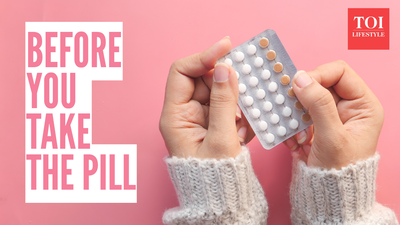Emergency Contraceptive Pill: 7 side effects of morning-after pill which are important to know |

In a moment of panic after contraceptive slip or unprotected sex, morning after pill is considered to be one of the most effective ways to prevent unintended pregnancy. However, morning-after pills can also bring some changes to the body.
What is the morning-after pill
These are emergency contraceptives, used as a backup to prevent pregnancy. These pills don’t end an existing pregnancy or induce an abortion, rather they work before fertilization or implantation occurs, as per World Health Organisation (WHO). According to US Centers for Disease Control and Prevention, the effectiveness is highest when taken as soon as possible after unprotected sex.

How do morning-after pills work
Morning-after pills delay or block ovulation, so there’s no egg available for sperm to fertilize. These pills act as a hormonal “pause button”, preventing ovulation just long enough for sperm to lose viability.
7 side effects of morning-after pill
When used correctly, morning-after pills can come handy. But like any medications, it can temporarily alter the body’s hormonal balance, leading to mild side effects in some users.

1. Nausea and vomitingNausea and vomiting are among the most common side-effects of emergency contraception pills. A review article on emergency contraception reports that nausea occurred in about 23% and vomiting in about 6% of the women who used morning-after pills. The hormonal surge delivered by the emergency contraception affects the gastrointestinal system and central nervous system: the sudden change in hormone levels can irritate the stomach and trigger nausea.2. Abdominal pain or crampsAfter taking morning-after pills, mild abdominal pain reactions are common. In one large WHO-sponsored study, 18% of women who took levonorgestrel-only emergency contraceptive pills reported abdominal pain or cramping within the first 24 hours.Studies suggest this happens as the body reacts to the sudden hormone surge, which can temporarily affect uterine and ovarian function.3. Breasts tendernessBreast tenderness or soreness is a common hormonal side effect reported after taking the morning-after pill. In a WHO trial 11–16% of women reported breast tenderness after consuming these pills. This happens because morning-after pills contain synthetic hormones that mimic the effects of progesterone or interfere with its action. This hormonal surge can cause fluid retention and temporary stimulation of breast tissue, leading to: swelling or heaviness, and a sensation similar to premenstrual breast soreness. 4. Headache, fatigue, or dizzinessAnother commonly reported effect of morning-after pills is mild-headache, fatigue and dizziness. 17% of users reported headache and fatigue. According to the Centers for Disease Control and Prevention (CDC), mild headache or dizziness does not affect the efficacy of the morning-after pill and resolves spontaneously.

5. Irregular bleeding or spottingAccording to a WHO report, up to 30% of women experience some form of spotting or irregular bleeding within the first week after taking levonorgestrel emergency contraception. Another study review form NIH found that following the use of a single dose of 1.5 mg levonorgestrel for emergency contraception, a significant proportion of women experienced changes in menstrual-bleeding patterns6. Changes in period timing or flowA landmark study-review published in NIH followed over 200 women after taking 1.5 mg levonorgestrel as emergency contraception. The researchers found that most women experienced changes in cycle length or bleeding pattern. About 30% had their next period sooner than expected, and around 15% experienced a delay of more than 7 days. Additionally, menstrual flow was reported as heavier in some and lighter in others, depending on which phase of the cycle they took the pill.7. Mood swings, changes in skin and appetiteA study-review in NIH explores the link between hormonal contraceptives and mood disorders, including depression and antidepressant use. The study found that initiation of hormonal contraception is associated with a statistically significant increase in antidepressant prescriptions, especially among younger users. Mood swings, mild acne, or appetite shifts are less common but recognized short-term effects of the morning-after pill.While most of these side effects are short-term and self-limiting, research consistently shows that they usually resolve within a few days as hormone levels normalize. However, consulting a healthcare professional is important. This ensures that pregnancy, underlying hormonal imbalance, or other medical issues are ruled out. As noted by the American College of Obstetricians and Gynecologists (ACOG), post-pill follow-up helps identify individual sensitivities and guide future contraceptive choices.






